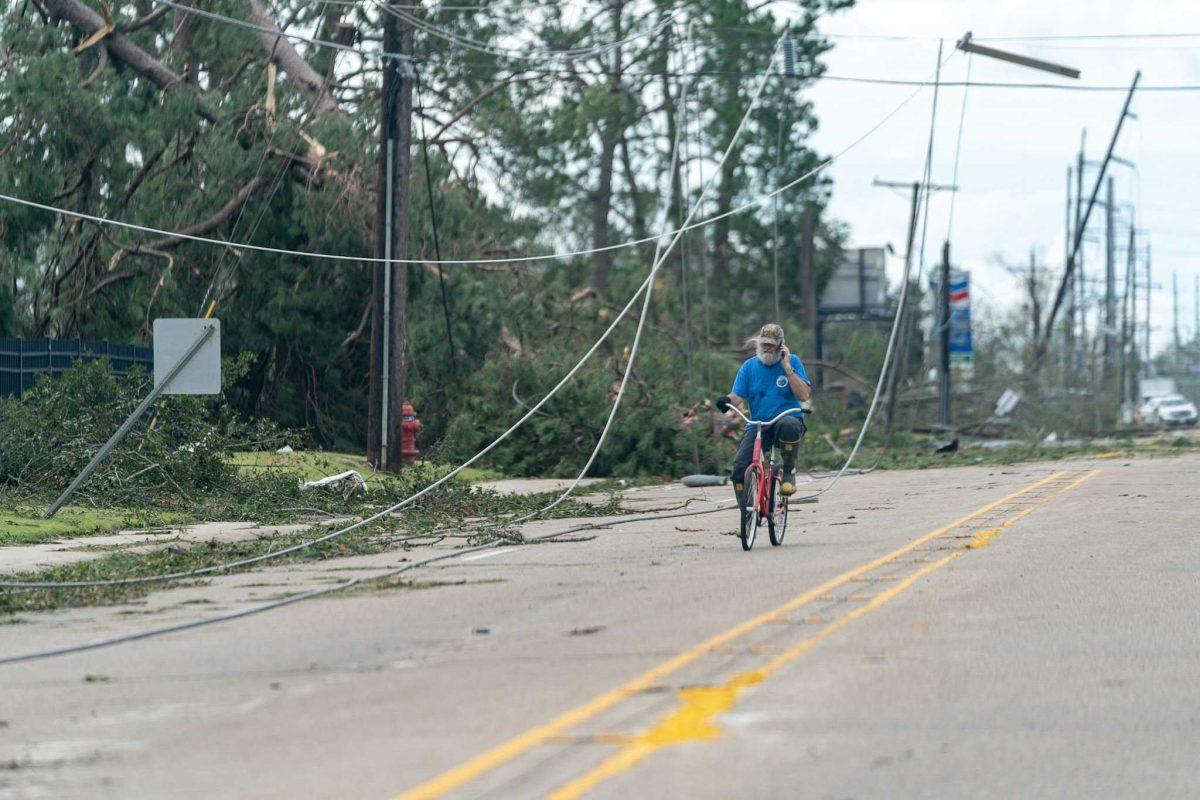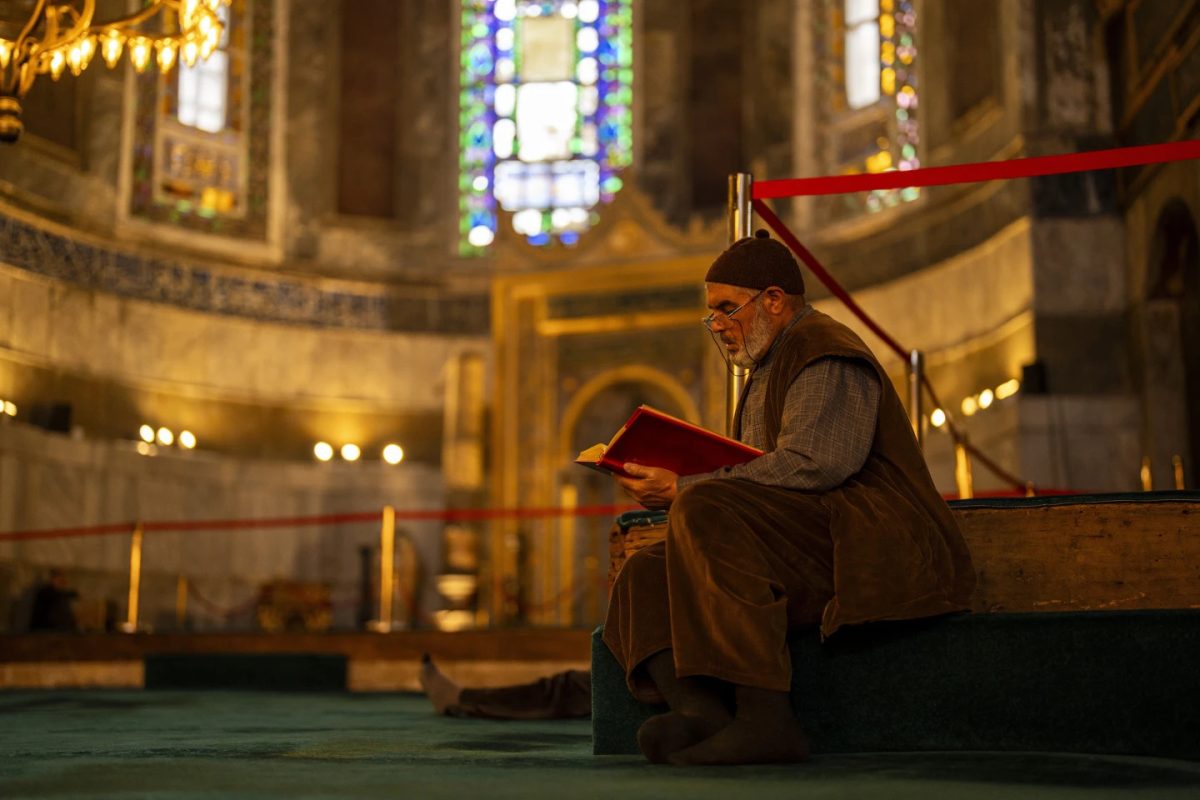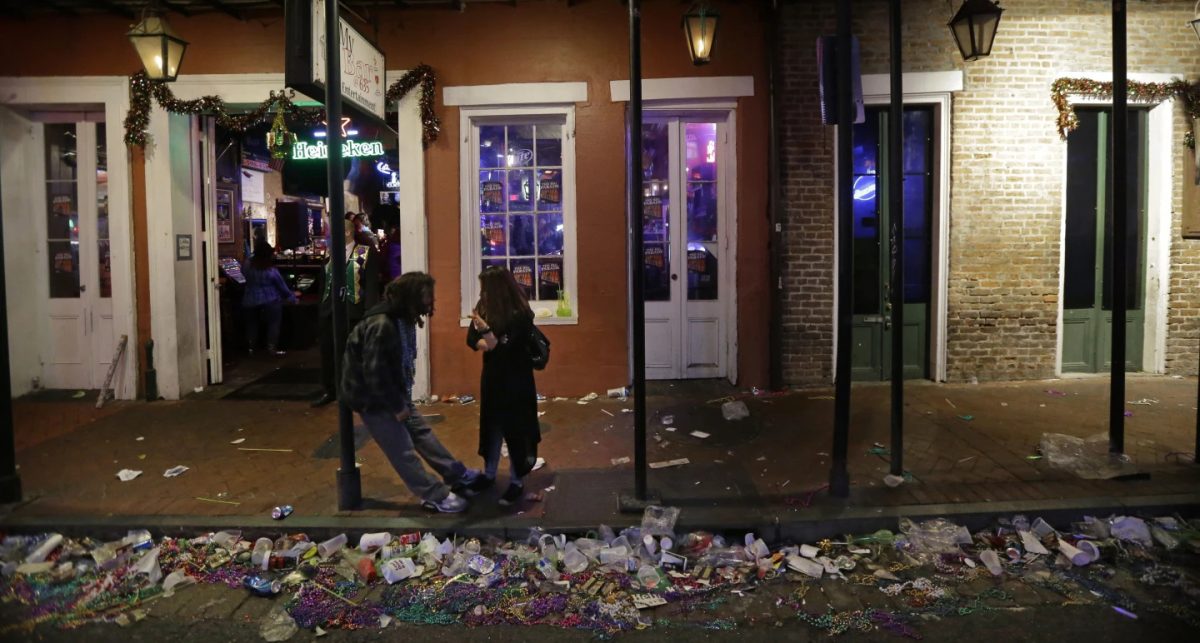As Hurricane Delta — the fourth landfall and twenty-fifth named storm of the 2020 season — barreled toward the Gulf Coast on Friday, many in south Louisiana found themselves once again asking: “Is staying here worth it?
For residents recovering from Hurricane Laura, the question of staying or leaving was especially pressing. Heavy branches, building remnants and other debris still line the streets of Lake Charles, and tarps still cover many leaking roofs, meaning the winds and rain of a Category 2 hurricane could prove more destructive than usual.
Hurricanes are the common cold of Gulf Coast weather, yet the residents of southern Louisiana have always been willing to rebuild their lives and communities after bad storms and floods hit home; after all, hurricanes as powerful as Laura were for a long time seen as once-in-a-lifetime threats.
However, as climatologists predict increasingly severe hurricane seasons due to global warming, rebuilding now seems futile. Some have called for the permanent mass evacuation of residents in extreme weather-prone regions but ultimately this is a short-sighted issue to a long-term environmental threat.
Environmental migration is considered a worst-case scenario—but for the thousands currently displaced due to desertification, forest fires, droughts and rising sea levels, it’s reality.
The first “American climate refugees” are right next door: Isle de Jean Charles in Terrebonne Parish, a community that has lost 98% of its original landmass to erosion and saltwater intrusion, is currently working with the Department of Housing and Urban Development to resettle their residents.
Resettling the 99 residents of Isle de Jean Charles is estimated to cost $48 million, and the decision of exactly where and how to resettle has been contentious. In true Louisiana fashion, many are unwilling to leave the land their families lived on for generations.
If it’s turning out to be so difficult and expensive to move just 99 people, how are the millions in the rest of southern Louisiana supposed to be able to relocate effectively?
Simply paying people to move into homes further inland will not replace the lives they had before. Universities, farms, grade schools, hospitals, churches and businesses will close, resulting in massive unemployment and financial insecurity. On a less definable level, people’s relationships and friendships will be deeply strained, as they’ll be forced to abandon deeply entrenched societal and familial structures.
Leaving unsalvageable places like Isle de Jean Charles is sadly necessary, but there are less traumatic options still available to the rest of southern Louisiana.
Our cities need to invest serious money into making their infrastructures as hurricane-proof as possible—constructing stronger buildings, burying power lines, investing in permeable pavement to prevent flooding, prohibiting new construction in high-risk flood zones, etc. This will alleviate hurricane damages and allow communities to quickly bounce back to normal functioning.
At a state level, Louisiana needs to revisit its toxic relationship with big oil and gas companies. Tax cuts and minimal environmental regulations will not bring jobs to Louisianans or boost our economy. Such measures only line the pockets of a few oilmen while recklessly destroying the coastal wetlands that are crucial to mitigating the effects of erosion and hurricane damage.
At a national level, federal spending needs to be reallocated to FEMA and other disaster relief efforts so Americans aren’t left homeless and hungry in the wake of these disasters.
Most crucially, our government needs to pass the Green New Deal. Slowing human-induced global warming is the only way we can prevent Louisiana from disappearing completely underwater.
It seems cruel—and impossible—to force any family out of their home permanently. I urge our government to act now to protect our state; it is a travesty to sit and let our state drown when we can defend it today.
Cécile Girard is a 20-year-old psychology junior from Lake Charles.







